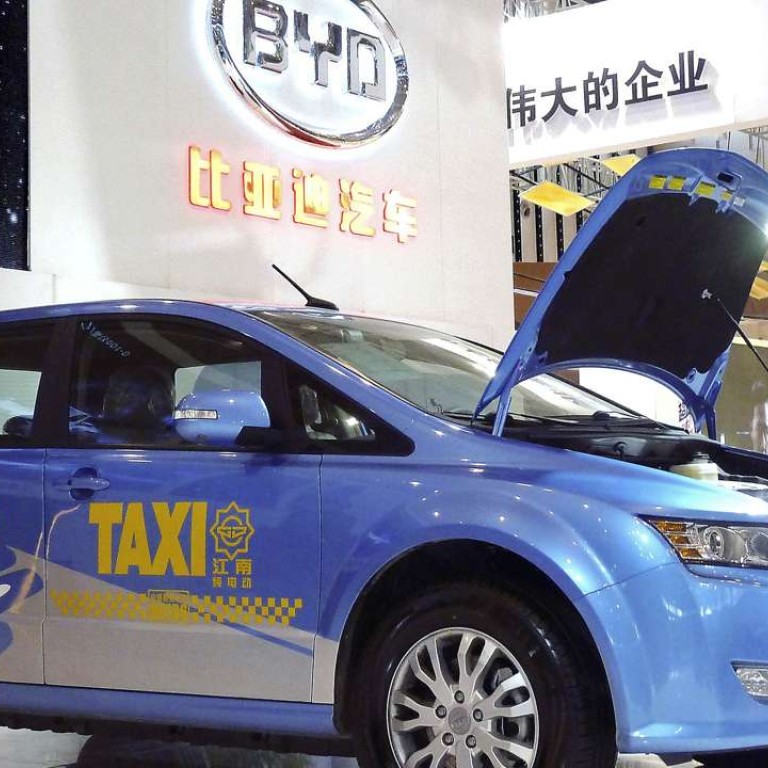
China carmaker BYD expects profit growth to slow as government ‘green’ subsidies phased out
Billionaire Wang Chang-fu, chairman of mainland China car and battery producer BYD Company, said on Monday its sales of new energy vehicles will double to 120,000 units this year.
With an increasing contribution from environmentally friendly vehicles, the Warren Buffett-backed BYD announced a 384 per cent net profit surge to 2.26 billion yuan for the six months ended June.
Sales of new energy vehicles rose 161 per cent to 15.32 billion yuan, boosted by government incentives for the purchase of “green” vehicles. That helped lift the company’s overall turnover to 43.7 billion yuan in the first half, up 43.74 per cent from a year earlier.
However, the scaling down of Chinese government grants and subsidies for new energy vehicles is expected to restrain the strong growth momentum, said market watchers.
China plans to gradually reduce subsidies for new energy vehicles and will stop providing financial assistance altogether after 2020, according to Finance Minister Lou Jiwei.
The government will cut 2017-2018 subsidies by 20 per cent from those granted in 2016, and 2019-2020 subsidies will be 40 per cent less than this year, Lou said earlier this year.
“The 20 per cent cut in government subsidies will unavoidably put pressure on the car producers’ profitability,” said Lo Ka-leung, a Hong Kong-based analyst at Kim Eng Securities.
The 20 per cent cut in government subsidies will unavoidably put pressure on the car producers’ profitability
Sales of new energy vehicles in Shanghai have already shrunk due to reduced subsidies. In response, BYD chairman Wang said the company will develop new models and expand advertising spending in the city to counter the effect of reduced subsidies.
In contrast to new energy vehicles, the group’s sales of traditional automobiles fell 29.61 per cent to 131,000 units in the first half. Wang said the drop was the result of strong competition in the market and because the company failed to update traditional models.
BYD also successfully targeted the market for public transport and received orders totalling more than 8,000 electric buses from three bus operators in Shenzhen in April and July 2016, which surpassed the group’s electric bus sales volume for all of 2015.
Kim Eng analyst Lo said Shenzhen-based BYD has a home town advantage when competing in the local market. “I think the company will not get orders for electric buses in other Chinese cities as easy as in Shenzhen because of fierce competition,” he said.
BYD’s shares in Hong Kong closed 2.45 per cent higher at HK$52.25 on Monday. Kim Eng Securities announced a “ hold” rating on the company.

